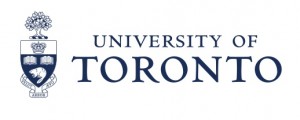TORONTO (October 14, 2010) – Of the approximately 300 million people around the world who are diabetics, 45 million of them develop foot ulcers that bleed – and the infection from those ulcers can spread.

Working to halt this is Dr. Ping Lee, a professor at the University of Toronto’s (U of T) Leslie Dan Faculty of Pharmacy and GlaxoSmithKline chair in Pharmaceutics and Drug Delivery. He and his team have created a new sustained‐release form of nitric oxide (NO) that can not only stop the infections at wound sites, but also has the potential to speed up wound‐healing.
Still, the technology may have stayed on the shelf, even with three years worth of data demonstrating therapeutic relevance. The ultimate success of the technology is due to an effective collaboration between Dr. Lee, the Innovations and Partnerships Office (IPO) at U of T and MaRS Innovation (MI). Lee worked with IPO and MI to formulate a development plan in consultation with numerous industry advisors.
For Dr. Lee’s discovery to have a chance of helping those millions of diabetics, it had to move from the laboratory and be readied for the marketplace. The first step in that often long and harsh process took place in June of 2009 when U of T agreed to work to validate the new diabetic wound‐healing technology, with MI , the commercialization agent that’s partnered with 14 leading Toronto universities, research institutes and hospitals to transform discovery research into new jobs, companies, opportunities and growth for Canadians.
An even bigger step took place last week when Cardium Therapeutics Inc. (Amex: CXM) of San Diego acquired the rights to use this Canadian discovery to expand its wound‐healing portfolio, which includes dressings, topical creams and gels, and electrospun fibres for bandages. The company already has a wound‐healing product in review with the U.S. Food and Drug Administration (FDA) and the new technology will give the company a platform to develop follow‐on products once FDA approval is obtained.

“Dr. Lee’s discovery was one of the first opportunities we committed to when we opened our doors just last year,” said Dr. Raphael (Rafi) Hofstein, president and CEO of MI. “There is a growing market for wound healing products and advances, given the unfortunate rise in the incidence of diabetes worldwide. We recognized the need for innovation in this field and the real potential to help transform his research into pioneering product opportunities. What was needed was funding, market intelligence and a knowledge of deal‐making with multiple partners from different sectors.”
Peter Lewis, associate vice president of research at U of T and interim executive director of IPO, said: “With U of T’s commitment to research excellence and commercialization, our relationship with MaRS Innovation is crucial. We’re thrilled that it’s already successful.”
For Cardium Therapeutics, which works with multiple technology commercialization offices across North America, partnering with MI was beneficial, says Cardium’s CEO, Christoper J. Reinhard: “MI brought great business understanding to the process. The team understood our needs quickly and they worked efficiently to get the deal done.”
Finally, praise from the inventor himself. “I’m a chemist and an academic, not a business strategist. I’ve been working with MaRS Innovation for over a year now and can say they understand the world of academic research and its requirements as discoveries are advanced from the laboratory to the marketplace.”
About MaRS Innovation
MaRS Innovation (MI) provides an integrated commercialization platform that harnesses the economic potential of the exceptional discovery pipeline of 14 leading Toronto academic institutions. MI is a non‐profit organization with an independent industry‐led Board of Directors, funded through the Government of Canada’s Networks of Centres of Excellence and contributions of its member institutions.
Designed to enhance the commercial output of Toronto’s outstanding scientific research cluster, MI will make a significant contribution to Canada’s economic outlook and the quality of life for Canadians and others around the world. MI will advance commercialization through industry partnerships, licensing and company creation. The MI mission is to put Canada on the global innovation stage, by better connecting research with industry and strengthening Canada’s competitive capacity in knowledge based businesses ‐ in short, to launch a new generation of robust, high‐growth Canadian companies that will become global market leaders.
About the University of Toronto (U of T)
The University of Toronto (U of T) has assembled one of the strongest research and teaching faculties in North America, presenting top students at all levels with an intellectual environment unmatched in breadth and depth on any other Canadian campus.
U of T faculty co‐author more research articles than their colleagues at any university in the US or Canada other than Harvard. As a measure of impact, U of T consistently ranks alongside the top five US universities whose discoveries are most often cited by other researchers around the world. The U of T faculty are also widely recognized for their teaching strengths and commitment to graduate supervision.
Established in 1827, the U of T today operates in downtown Toronto, Mississauga and Scarborough, as well as in ten renowned academic hospitals. The Innovations and Partnerships Office (IPO) was established as The Innovations Foundation in 1980. IPO’s mission is to enrich the stature of the University of Toronto by building partnerships with the private, public and government sectors to enable and facilitate the transfer of research results, problem solving, new technologies and social innovation to all sectors for the benefit of society.

